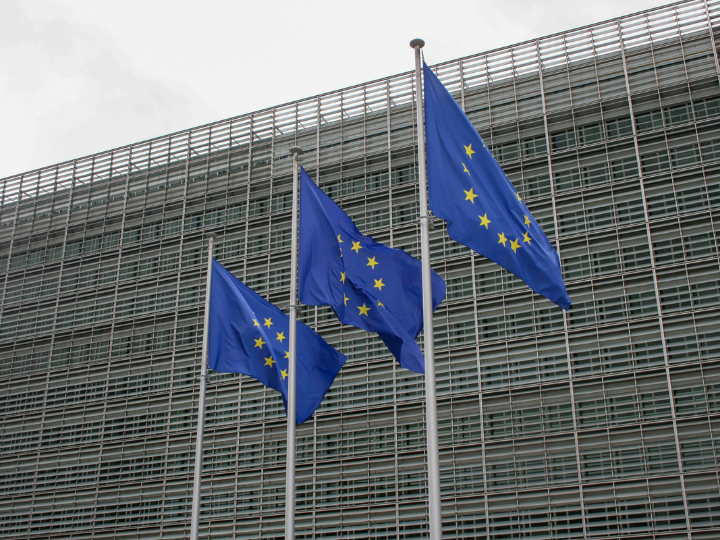by Stefan Lehne*
On the face of it, the EU’s institutional transition of 2024 has been going well. The radical right once again failed to make a decisive breakthrough in the European Parliament elections. By choosing Ursula von der Leyen as European Commission president, Kaja Kallas as EU high representative, and Antonio Costa as its own president, the European Council came up with a leadership team that—unlike the present one—might actually be capable of working together.
With a pro-EU majority in the European Parliament, a competent leadership team, an effective commission, and an ambitious plan to supercharge EU productivity and competitiveness, as outlined in the report by former European Central Bank president Mario Draghi, what could possibly go wrong? Unfortunately, everything!
A crisis of confidence manifested in political divisions, surging radical-right parties and sinking national budgets is gripping many European countries. As a result, the EU risks missing the last train to preserve its global standing.
After easily reaching the necessary majority for reelection by the parliament, von der Leyen spent the summer assembling the commissioners for the next term. The new team may not be as gender-balanced as she had wished and not all candidates will survive the parliamentary hearings, but she has clearly managed to shape the process according to her priorities. This will again be a presidential commission with most of the power centralized at the top: not the epitome of collegiality but an effective instrument to get things done.
Also, this commission has a plan. From von der Leyen’s letters of instruction to her fellow commissioners it is clear that she considers the recent report by Draghi as the masterplan for the next five years. The report is certainly ambitious. It considers enhancing Europe’s productivity as the key requirement for its future competitiveness and, to this end, sets out an array of far-reaching reform proposals.
At its center is a new industrial strategy aimed at mobilizing €700-800 billion ($777-888 billion) every year. The report calls for an overhaul of the EU’s competition and trade policies, a more coordinated approach to decarbonization and industrial policy, and for the integration of capital markets and reduction of the regulatory burden of European business. Ramping up investments will, according to Draghi, also require a considerable amount of additional public funding.
Few policy makers and experts challenged Draghi’s diagnosis that without drastic remedial action Europe’s economy risks succumbing to “the slow agony of decline.” They also seemed to agree that the proposed reforms were broadly the right ones. Yet, the response in capitals was also schizophrenic. This positive assessment was accompanied by profound skepticism that the EU in its current shape would actually be capable of decisively moving in this direction.
One problem is the fragmentation of the party landscape. Multiple elections, complicated coalitions, and a volatile political climate hamper the effectiveness of governance in many parts of the EU. Particularly worrying is the lack of stable governance in France and Germany, which will, in the short and medium term, be fully preoccupied by domestic political struggles. Although the times of the Franco-German motor of EU integration are long gone, very little can be accomplished in the EU without the constructive engagement of these two countries.
A second concern is the rising influence of radical-right parties, which are much more influential on the national level than the European one. The triumph of the right-wing Freedom Party of Austria (FPO) at the Austrian parliamentary election, the success of the ANO party in the Czech regional elections, and the strong showing of Alternative for Germany (AfD) in eastern Germany confirm that the nationalist virus is still spreading. Far-right parties already form part of seven government coalitions in the EU and even where they are not in government, their Euroskeptical “nation-first” mindset has been gaining ground also in the political center.
Thirdly, the massive financing during the Covid-19 and energy crises has left gaping holes in national budgets. The idea of significantly expanding EU funding for technological innovation, for the climate transition, and for defense is likely to run into determined opposition from the net payers in Europe’s north. The work on the next multiannual financial framework, beginning in 2025, promises to become highly contentious.
Exhausted by too many crises, divided by diverging domestic interests, and lacking impressive pro-European national leaders, the EU machine will struggle to perform at the scale and pace required. In contrast to the dark days of the financial or Covid-19 crises, the risk today is not one of collapse or breakup but rather that of gradually drifting toward an “ever looser union.” The slow death of the Schengen zone of passport-free travel through the proliferation of national border controls already points in this direction.
Without a stronger EU, European countries cannot compete at the scale of the United States or China. The most brilliant technocratic reform ideas will go nowhere if the confidence in European solutions is lacking. Rebuilding the faith in collective European action and countering the spreading defeatism are therefore the most urgent challenges for the new EU leadership.
*Senior Fellow, Carnegie Europe
**first publshed in: Carnegieendowment.org




 By: N. Peter Kramer
By: N. Peter Kramer
